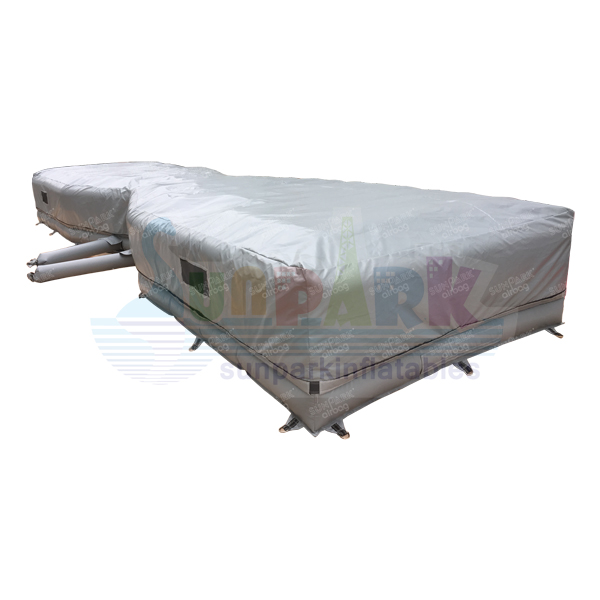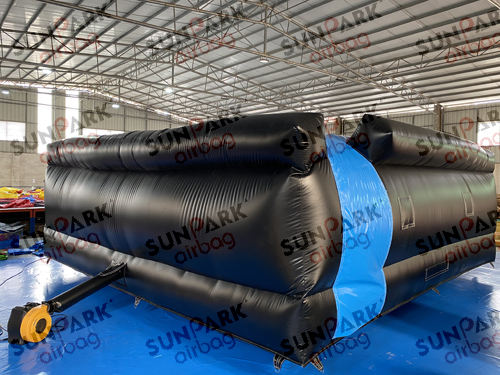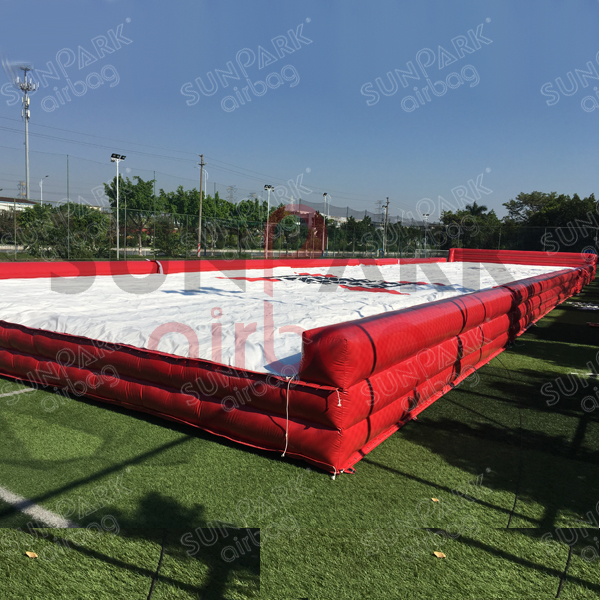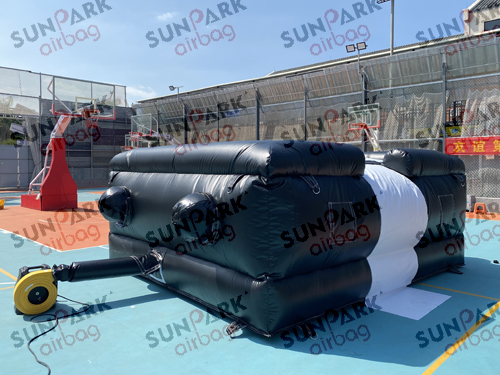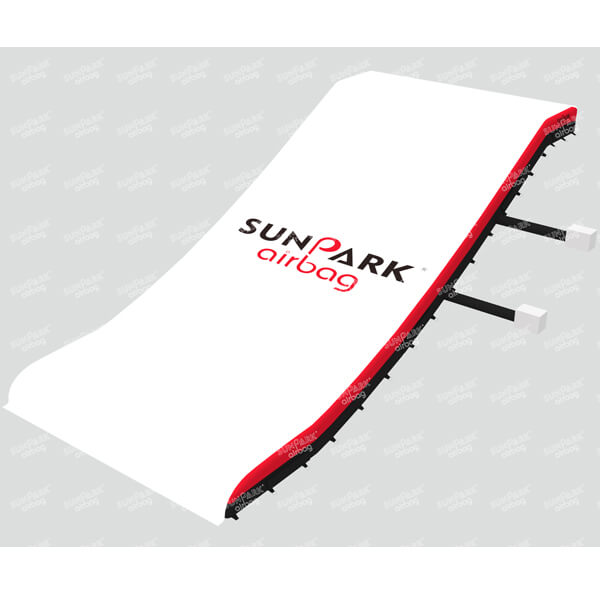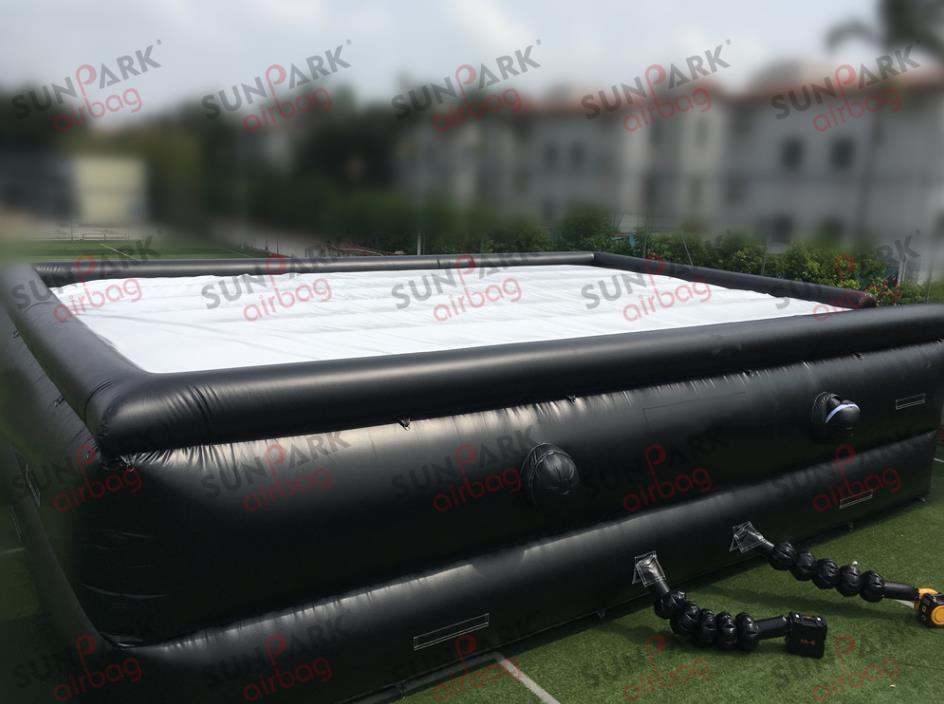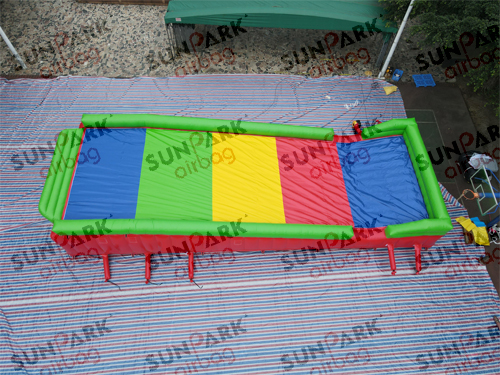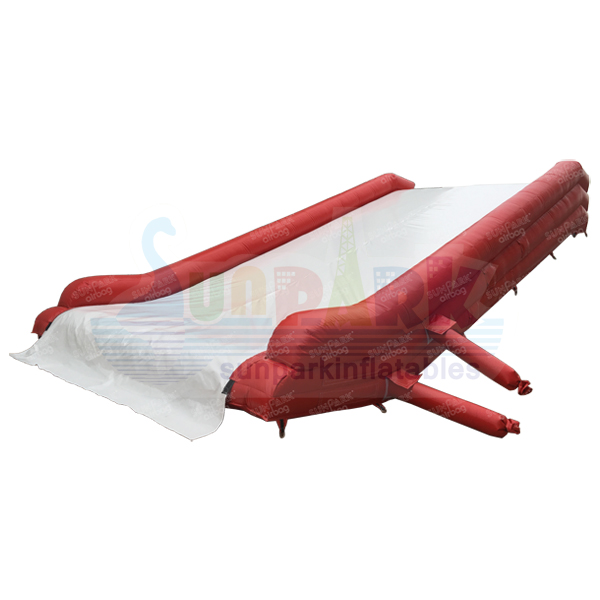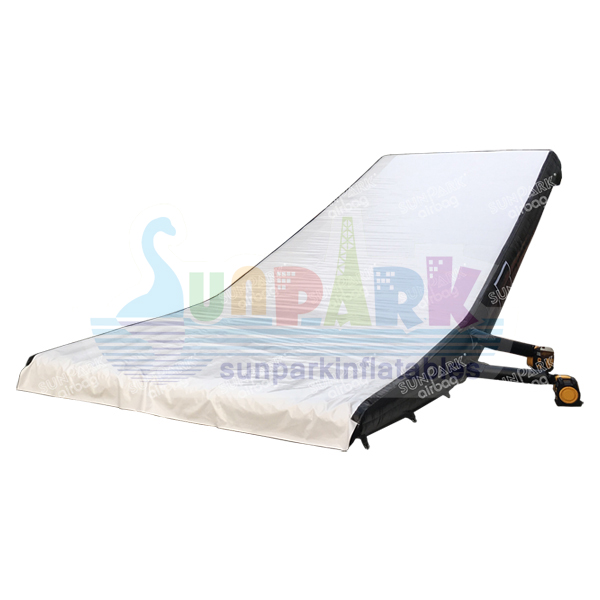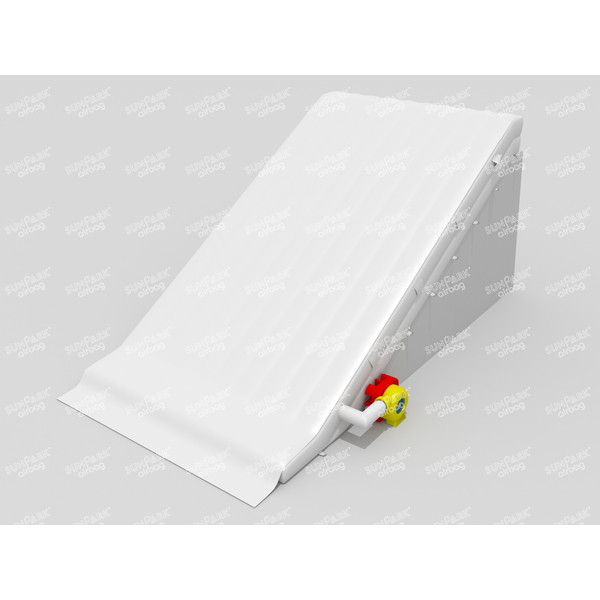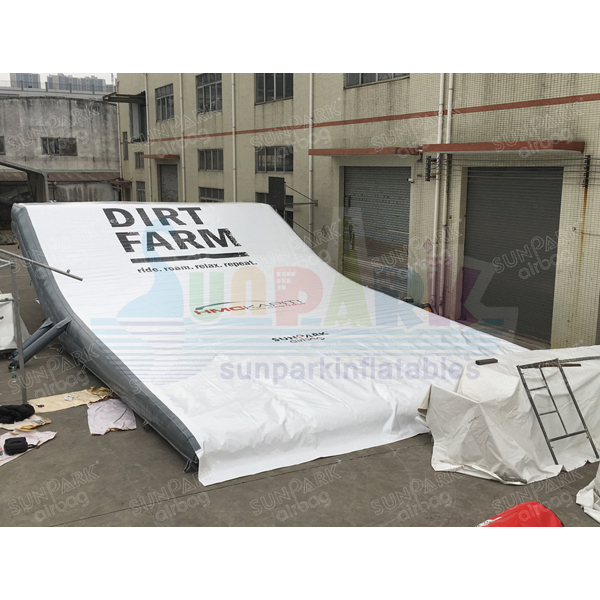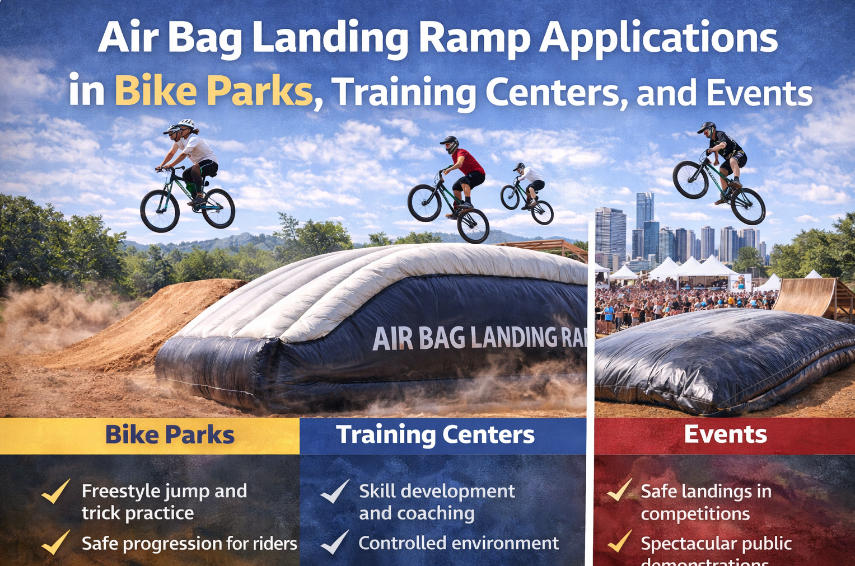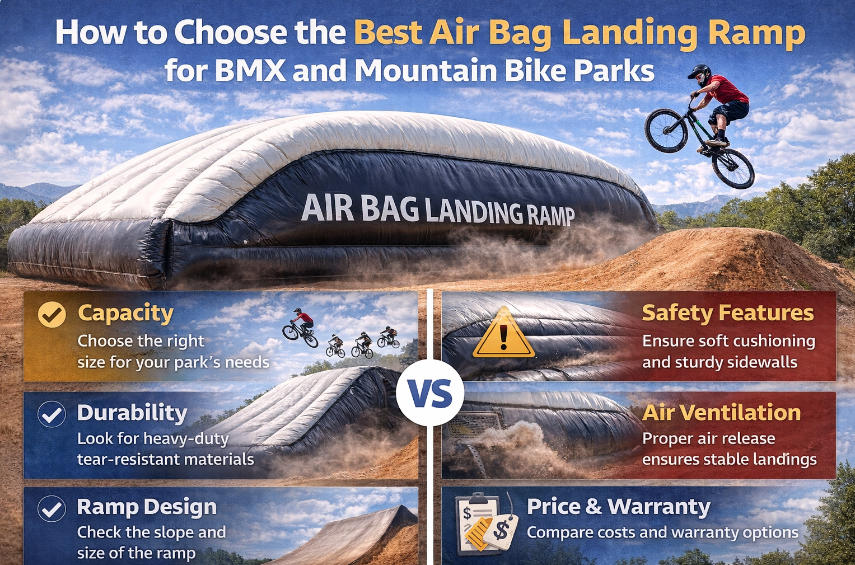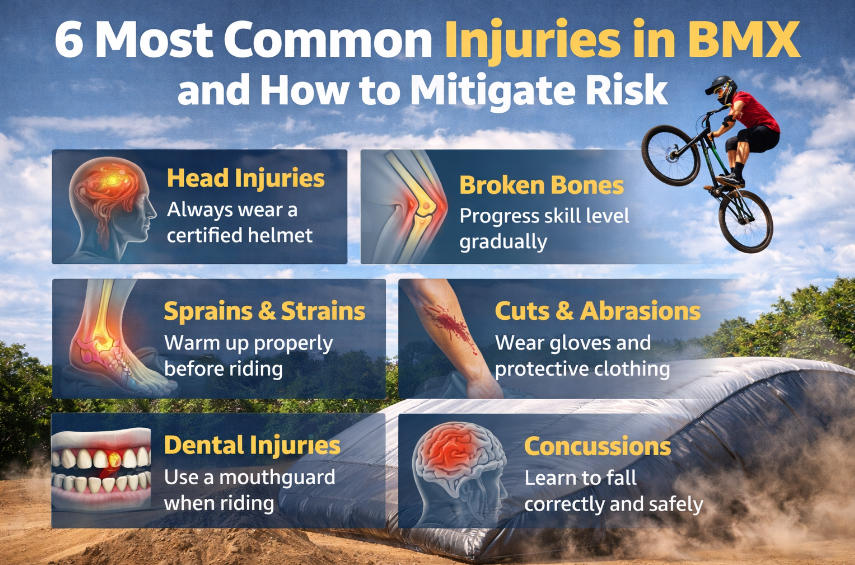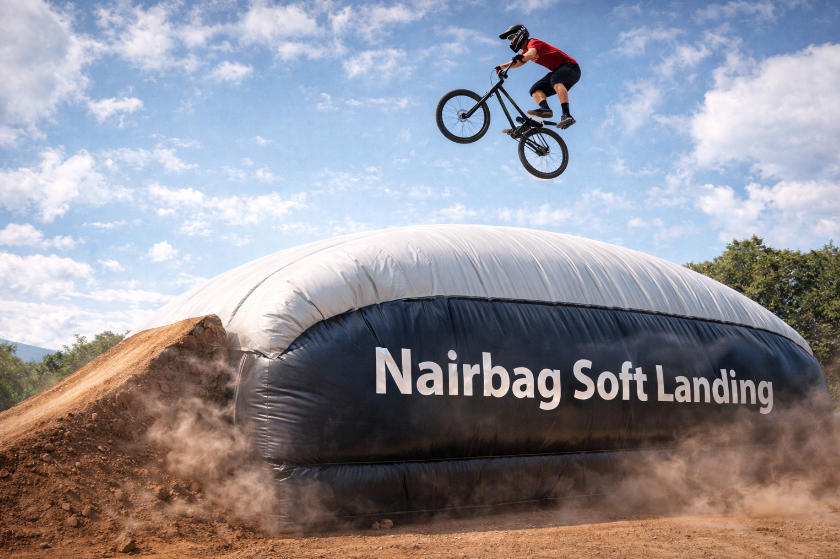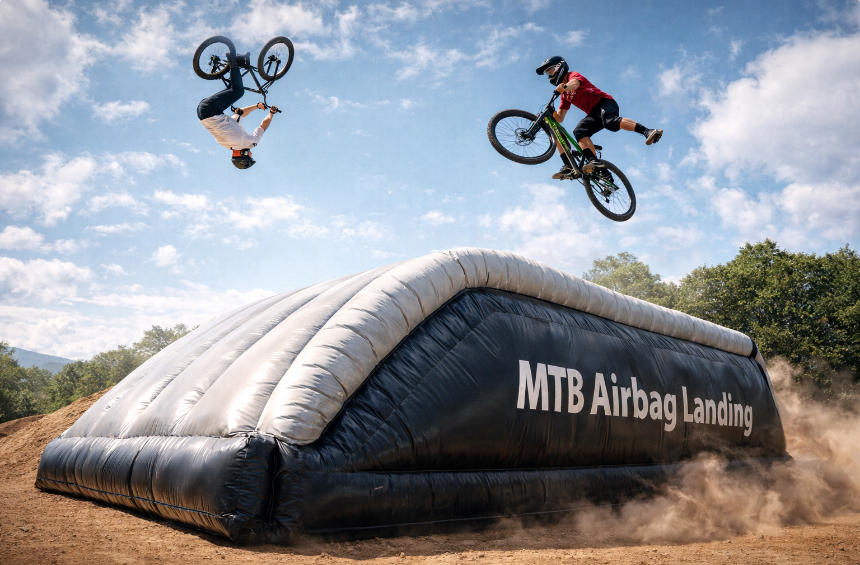1. Introduction — Why airbag safety is non-negotiable
Whether used in BMX training, MTB landing practice, freestyle skiing, or trampoline parks, professional airbags must deliver predictable performance and minimize injury risk. The best airbag safety features go beyond cushioning falls: they protect users through durable design, stable anchoring, and hygienic surfaces. This guide explores the design elements and safety standards that distinguish high-quality airbags from low-cost alternatives.
2. The importance of safety in professional sports airbags
Sports airbags are exposed to high-impact crashes, repeated usage, and diverse environments. Without rigorous airbag design features, risks increase: unstable edges, uneven landings, or blowouts can cause injuries instead of preventing them. For park operators and event organizers, investing in durable sports airbags ensures not only safety but also customer trust, insurance compliance, and operational efficiency.
3. Best safety features to demand in professional airbags
3.1 Durable outer shell materials
Look for flame-retardant, UV-resistant PVC/TPU shells. A durable sports airbag resists abrasion from bikes, boards, and shoes. SunparkAirbag’s Foam Pit Airbag and Trampoline Airbag use heavy-duty textiles with multi-season durability.
3.2 Internal baffling and chamber systems
Multi-chamber baffling prevents bottom-out by distributing pressure across pillars or zones. Products like the MTB Jump Airbag use baffled structures for consistent, safe landings.
3.3 Valve and vent design for controlled landings
Venting allows air to escape in a controlled way, absorbing impact gradually. Poorly designed valves risk over-hardening or deflation. Check Sunpark’s Landing Airbag for adjustable venting systems.
3.4 Edge stoppers and perimeter protection
Edge stoppers reduce roll-offs and protect riders who land off-center. This is vital for freestyle training where riders attempt spins and flips. See Stunt Airbag for examples of reinforced perimeter control.
3.5 Anchoring systems for stability
Anchors prevent airbags from shifting under repeated impacts. Every Sunpark product, from Freefall Airbags to Inflated Landing Bags, includes anchor maps for safe setup.
3.6 Blower redundancy and air pressure control
Safety requires stable inflation. Redundant blowers and pressure monitoring systems ensure continuous operation even if one blower fails.
3.7 Hygiene and surface safety
Unlike foam pits, airbags are easy to clean. A safe foam pit airbag solution like Foam Pit Jump Airbag eliminates hygiene issues, preventing bacteria buildup.
4. Airbag safety compared to foam pits and crash mats
| Feature | Professional Airbag | Foam Pit | Crash Mat |
|---|---|---|---|
| Energy absorption | High, tunable | Variable, degrades over time | Medium |
| Edge safety | Edge stoppers, anchors | None | Limited |
| Hygiene | Wipeable surfaces | Poor | Medium |
| Stability | Anchored | Loose cubes shift | Stable but hard |
| Maintenance | Low | High | Medium |
| Best use case | Parks, BMX/MTB, freefall attractions | Indoor gyms, casual play | Small gyms, low drops |
5. Inspection, testing, and certifications
When purchasing a professional airbag, ask vendors for:
Pressure and attenuation test data.
Material certifications (flame retardancy, REACH compliance).
Compliance with ASTM F2374 for inflatable devices.
EU customers: check EN 14960 for inflatable safety standards.
6. Maintenance routines to preserve safety
Daily: check seams, anchors, and blower function.
Weekly: clean surface and test vent responsiveness.
Monthly: inspect anchor hardware, filters, and pressure seals.
Annually: schedule professional inspection and patching.
Sunpark’s Air Landing overview includes setup and inspection guidance.
7. Case studies: airbags in sports & parks
BMX freestyle: Riders at training parks improved barspin attempts by 40% after installing a BMX airbag.
MTB freeride: Coaches used an MTB airbag to introduce backflips safely.
Trampoline park: Operators reduced staff time resetting pits by replacing foam with airbags.
8. Best practices for operators
Train staff to monitor inflation and guide riders.
Enforce protective gear use.
Establish progression steps: foam pit → airbag → dirt.
Display signage with weight/height restrictions.
9. Buying checklist
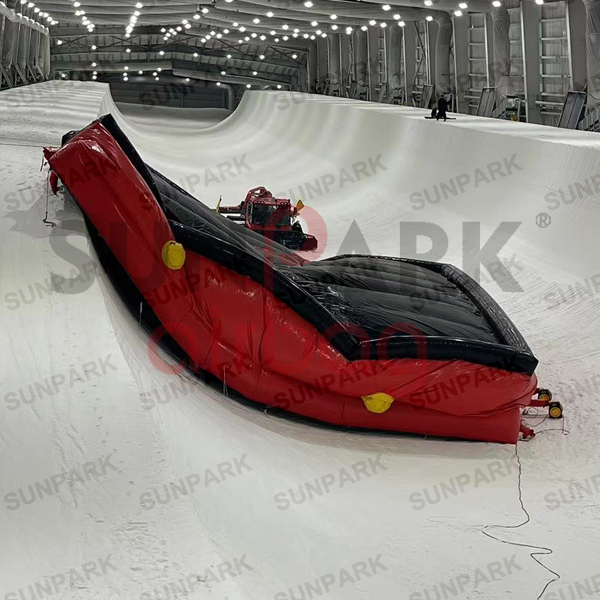
Before ordering, confirm:
Shell fabric specs.
Chamber layout diagrams.
Anchor maps & blower requirements.
Spare parts availability.
Warranty coverage.
Custom branding options (Sunpark offers custom designs).
10. Internal resource links (SunparkAirbag)
11. Conclusion
Professional airbags with the best airbag safety features — durable shells, baffling, valves, edge stoppers, anchors, and hygiene systems — protect athletes and operators alike. When compared to foam pits or crash mats, durable sports airbags are safer, more hygienic, and easier to maintain. Before purchasing, use the checklist above and review SunparkAirbag’s product lines to ensure your investment delivers safe landings and long-term performance.
👉 Explore the full range of SunparkAirbag products to find airbags designed with advanced airbag design features for your park, gym, or event.

